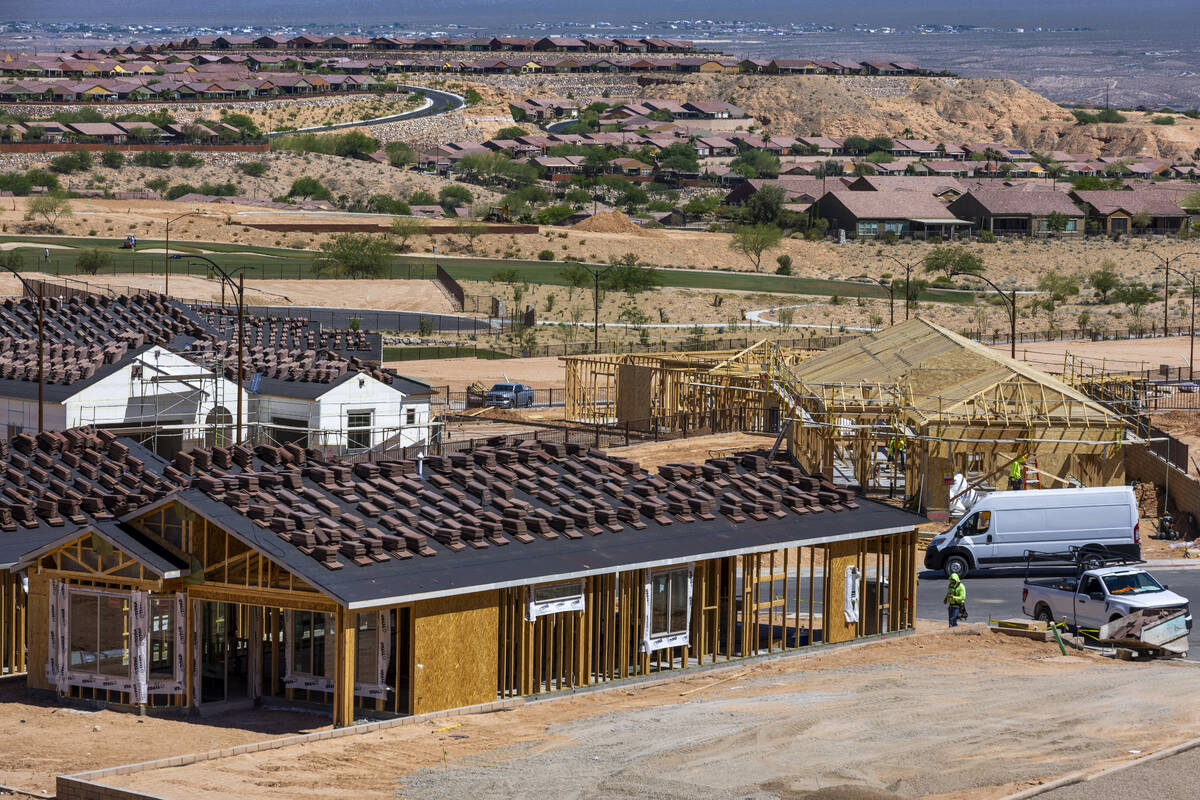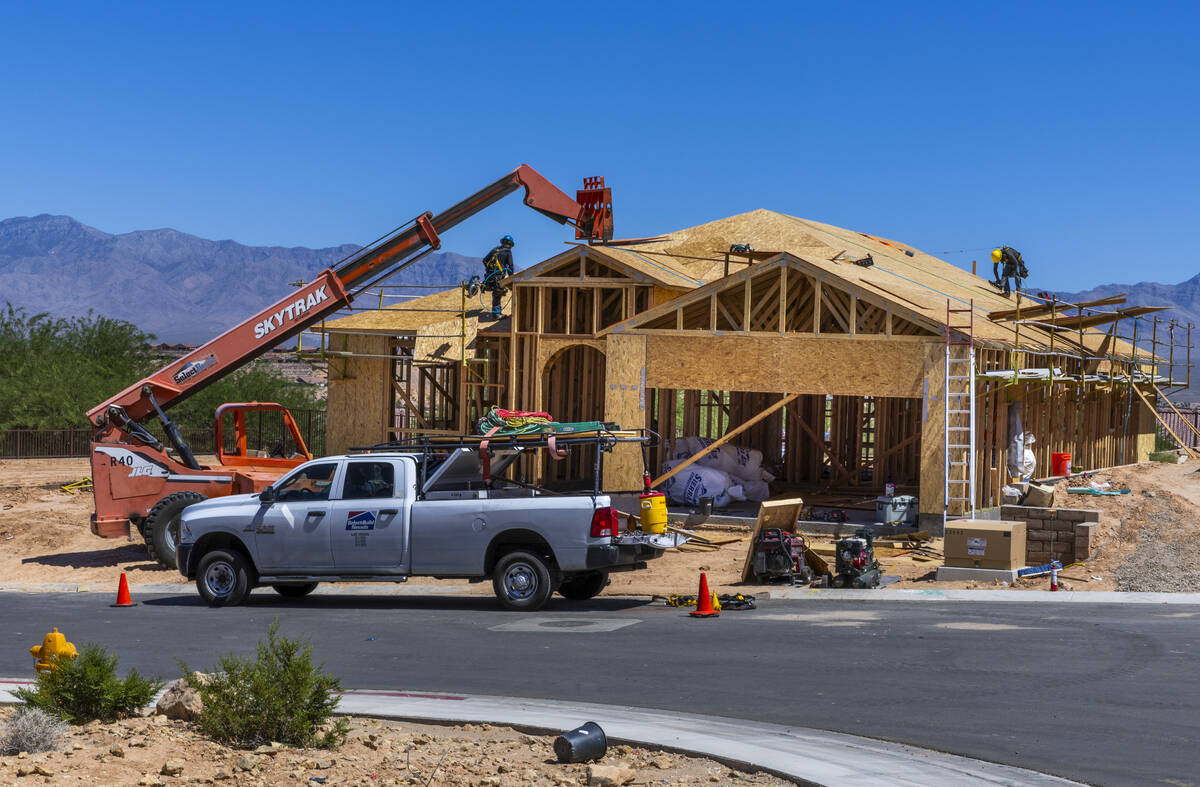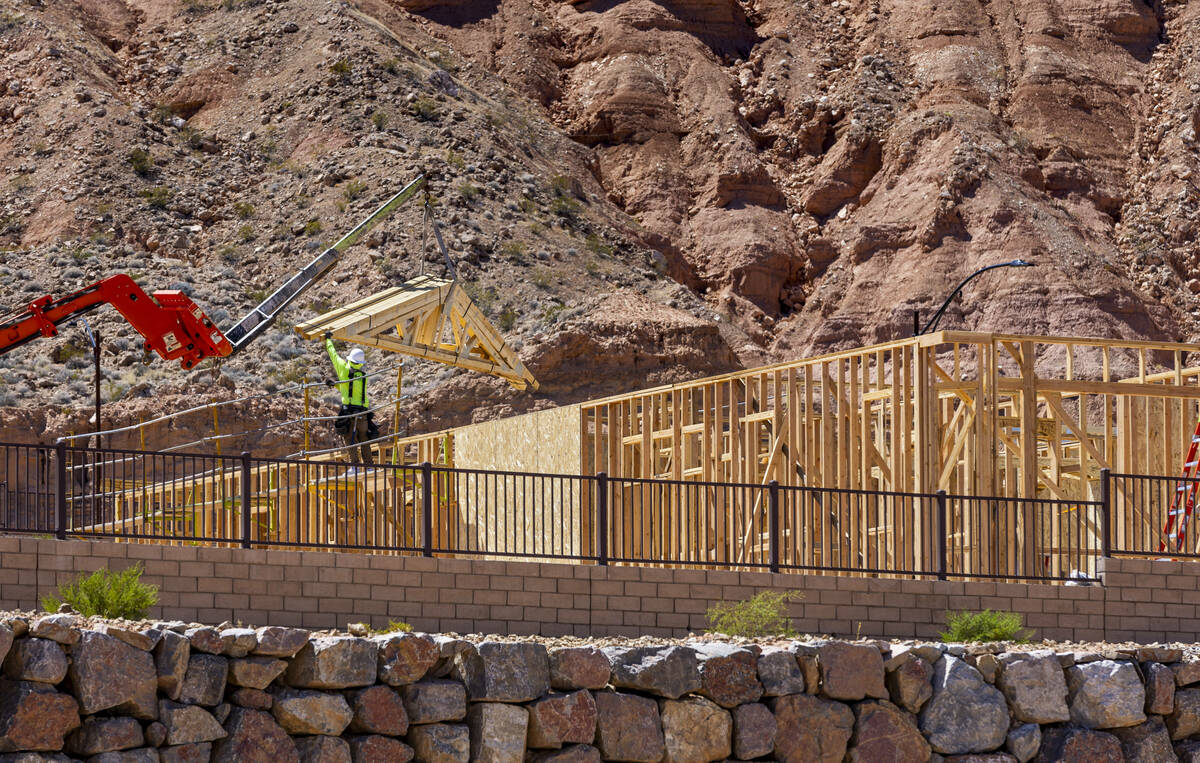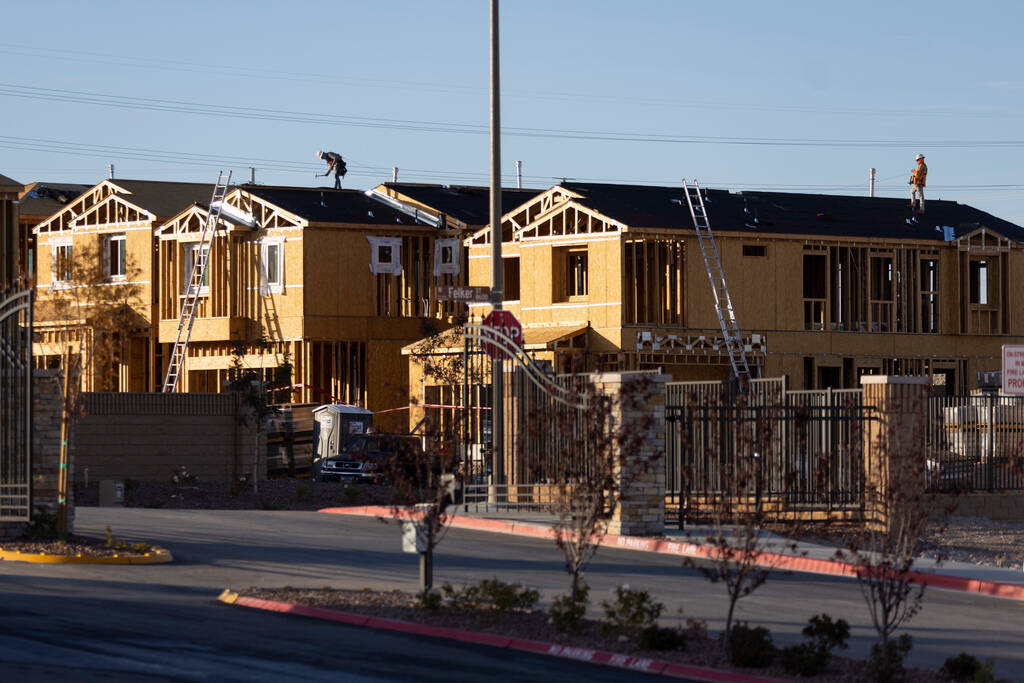New Southern Nevada homes now make up 25% of sales as builders offer incentives
With mortgage rates at a 20-year high and many homeowners locked into low rates they nabbed during the pandemic, fewer existing houses are selling in Southern Nevada and homebuilders are offering more incentives to get buyers into new homes.
Some major homebuilders are offering 2-to-1 mortgage packages to entice buyers as mortgage rates hover around 7 percent, multiple valley real estate agents told the Las Vegas Review-Journal. This is when the financing arm of a homebuilder buys down the mortgage rate for two years, sometimes by up to 2 percent, but once the deal expires, it goes back up to the market rate.
Major homebuilders in the valley including Lennar, KB Home and DR Horton didn’t respond to requests for comments on mortgage incentives they are offering in the market. Lennar did acknowledge in a first quarter earnings call that the U.S. economy is making it very difficult for the housing market right now.
“With higher interest rates, affordability continues to be tested as higher monthly payments make qualifying for a loan increasingly difficult,” Lennar executive chairman and co-Chief Executive Officer Stuart Miller said on the call. “We’ve started to see early evidence of debt delinquency showing up and derailing some mortgage applications.”
The Southern Nevada Home Builders Association estimates the region will end 2024 with 11,500 permits pulled for new home construction in the region, and new home sales are up roughly 8 percent from this time last year. In 2023, 10,442 homes were built in Southern Nevada and 11,106 homes were built in 2022.
The shift to new home sales signals a significant market dynamic shift in 2024 as sales in Southern Nevada crossed an important threshold last year, one it has not passed since the Great Recession. In 2023, new home sales made up 25 percent of the residential sales market, and the last time that figure was that high was in 2008 (24 percent). Resale home sales also hit their lowest rate last year (30,480) since 2007 when 23,956 existing residential properties were sold in the region, according to data compiled by Applied Analysis.
Selling new homes with mortgage incentives
Freddie Mac, a government backed mortgage lender, noted the rise of 2-to-1 mortgage buydowns in a 2023 research brief, stating they could explain the “surprising strength of homebuying demand” even as interest rates peaked. The report also stated that in the second part of 2022, the share of buydown mortgages spiked when rates eclipsed 6 percent for the first time since the Great Recession, however the market remains “niche.”
Nicholas Irwin, a UNLV assistant professor of economics and researcher at the Lied Center for Real Estate, said the mortgage buydown program has some eerie similarities to the Great Recession and its housing market crash given the chance that interest rates may not fall at all within the next two years, and could feasibly even increase.
“(Homebuilders) are all trying to maximize their profits as best they can given the current restraints, and I am sure this is something that maybe some developers are considering,” he said. “But in the same way, we weren’t asking the same questions of real estate agents back in 2005 or 2006 when they were steering people to get these exotic mortgages.”
However, other real estate agents who spoke to the Las Vegas Review-Journal said new home sales have kept their industry from flat-lining, as last year residential sales in the Las Vegas Valley hit their lowest point since the Great Recession of 2008-09. They promote new homes before showing resale properties for a variety of reasons, in part, because they have developed relationships with many of the homebuilders who can offer them competitive commissions in a market fraught with a lack of sales.
Many homeowners are hesitant to leave the homes they are currently in, and more importantly, give up the ultra-low interest rate they nabbed during the pandemic. Analysts said this “locking” phenomenon is a country-wide issue, and has pushed the entire nation into a housing crisis.
Brian Gordon, a principal at Applied Analysis, said it’s important to take Las Vegas’ housing market, and the entire country’s current situation into proper context. Before the Great Recession, new home construction and sales were more than double than what they are now and that Las Vegas “was clearly overbuilt.”
“And when the spigot shut off during the Great Recession, that resulted in excess capacity with fewer buyers,” he said. “And as a result there was just less demand for housing overall including new homes… and looking forward now the inverse has started to prevail in recent years as there is limited availability in the resale market.”
Pushing buyers to new homes
Some agents are taking things even further.
Member agents of the Las Vegas Realtors who logged onto their Multiple Listing Service account a few months back were greeted with an offer for a webinar with a subhead that read: “Demand for new homes will be a driving factor in 2024. Selling new homes compared to resales will be a cakewalk. Homebuilders will resist lowering their commissions no matter how good the market gets.”
Multiple brokers who spoke to the Las Vegas Review-Journal said pushing homebuyers towards new homes first instead of existing properties crosses an ethical line, however are hesitant to speak out publicly about the issue.
President Merri Perry responded to the inquiry in an email response to the Las Vegas Review-Journal.
“While newly built homes make up an increasingly important share of the local housing market, LVR does not encourage its members to favor new homes over existing homes in any way,” she said.





















